Just a reminder: The future of LiA is very much in doubt, and it’s up to you to decide what happens next. Thank you for all your support!
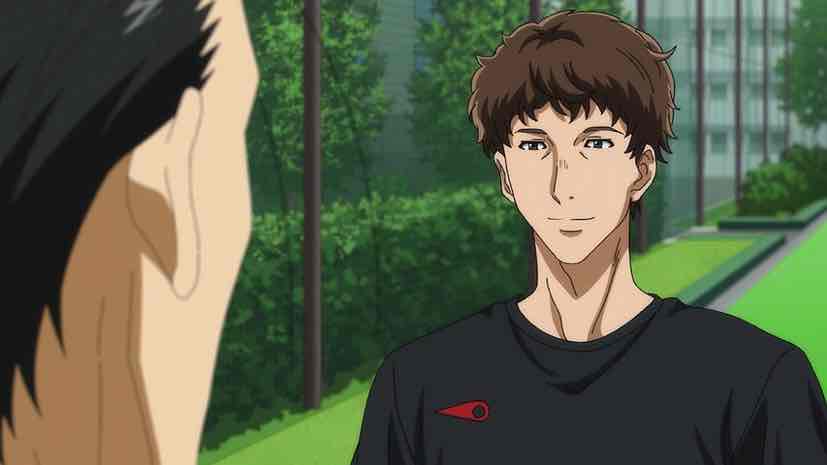 No question about it, soccer is a complicated sport. Maybe the most complicated if you ask me, though that’s the sort of topic about which you’d get endless arguments. But fundamentally it has constants, and one of them is that confidence is really important. Form is critical, both for individual players (especially strikers) and for teams. A team that’s on good form will have far more self-belief during a match, when players are somewhat on an island and forced to think for themselves. That’s especially critical when things start going against plans (and expectations). It’s important on the pro level and if that’s the case, you can be damn well sure it’s important in youth soccer.
No question about it, soccer is a complicated sport. Maybe the most complicated if you ask me, though that’s the sort of topic about which you’d get endless arguments. But fundamentally it has constants, and one of them is that confidence is really important. Form is critical, both for individual players (especially strikers) and for teams. A team that’s on good form will have far more self-belief during a match, when players are somewhat on an island and forced to think for themselves. That’s especially critical when things start going against plans (and expectations). It’s important on the pro level and if that’s the case, you can be damn well sure it’s important in youth soccer.
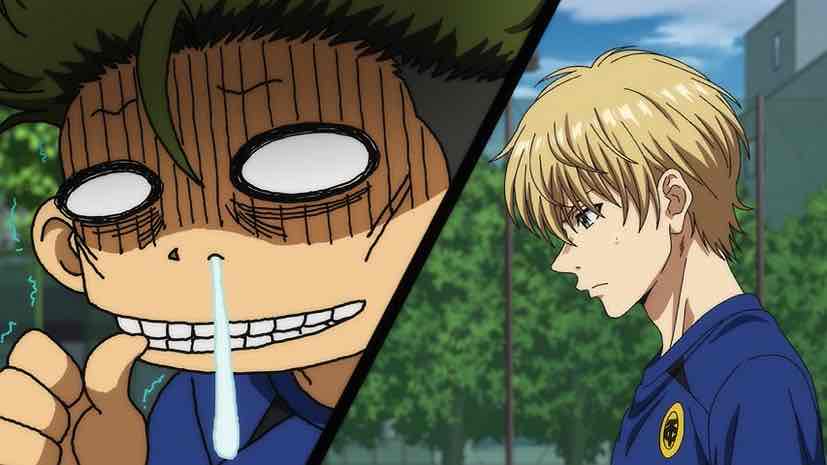 Date’s tactic of relying on long balls is certainly sound against a high press. He’s no fool – he’s surely aware that Satake-san will have seen this tactic before, as it’s a very common way of countering what Musashino does. What Date-san is banking on is that Esperion’s superior individual skill will allow them to pick apart Musashino anyway – not a bad bet in a vacuum. But Musashino is very well-coached, and their coach and their captain Mutou Chiaki (Ono Yuuki) clearly have a depth of trust and understanding between them. Date had to know Musashino would adjust – they adjusted faster than he expected. And that’s where form comes in.
Date’s tactic of relying on long balls is certainly sound against a high press. He’s no fool – he’s surely aware that Satake-san will have seen this tactic before, as it’s a very common way of countering what Musashino does. What Date-san is banking on is that Esperion’s superior individual skill will allow them to pick apart Musashino anyway – not a bad bet in a vacuum. But Musashino is very well-coached, and their coach and their captain Mutou Chiaki (Ono Yuuki) clearly have a depth of trust and understanding between them. Date had to know Musashino would adjust – they adjusted faster than he expected. And that’s where form comes in.
 While the Leicester side that won the Premier League in 2015-16 in arguably the greatest upset in sports history weren’t expressly a high press team, and played with 2 up top, this Musashino team reminds me of them in some ways. Leicester certainly did press, especially second striker Okazaki Shinji, and they beat technically stronger teams all season long through cohesion, belief, and moments of individual brilliance. Many of them came from the mercurial Algerian right winger Riyad Mahrez (now with Pep at Manchester City), one of the most technically gifted footballers in the world. But the one Musashino puts me in mind of is the #9, Jamie Vardy.
While the Leicester side that won the Premier League in 2015-16 in arguably the greatest upset in sports history weren’t expressly a high press team, and played with 2 up top, this Musashino team reminds me of them in some ways. Leicester certainly did press, especially second striker Okazaki Shinji, and they beat technically stronger teams all season long through cohesion, belief, and moments of individual brilliance. Many of them came from the mercurial Algerian right winger Riyad Mahrez (now with Pep at Manchester City), one of the most technically gifted footballers in the world. But the one Musashino puts me in mind of is the #9, Jamie Vardy.
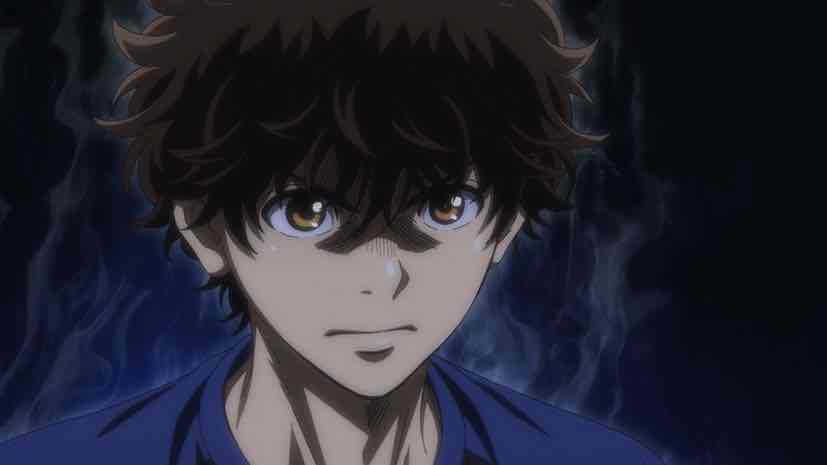 Vardy has an interesting backstory all his own – going from non-league football to the top of the PL. But Kaneda reminds me very much of him, because (especially that magical season) Vardy was unparalleled at punishing any mistake – give him an inch, he’s take a goal. Through pace and reading the game, he could strike in an instant. Sometimes it came from long balls over the top, sometimes from the press. Like Kaneda he was a glorious example of what a pure striker on-form and bursting with confidence can do. Leicester won the league while finishing 18th in possession, and was possibly the greatest counterattacking side in football history. And Vardy was a huge part of that.
Vardy has an interesting backstory all his own – going from non-league football to the top of the PL. But Kaneda reminds me very much of him, because (especially that magical season) Vardy was unparalleled at punishing any mistake – give him an inch, he’s take a goal. Through pace and reading the game, he could strike in an instant. Sometimes it came from long balls over the top, sometimes from the press. Like Kaneda he was a glorious example of what a pure striker on-form and bursting with confidence can do. Leicester won the league while finishing 18th in possession, and was possibly the greatest counterattacking side in football history. And Vardy was a huge part of that.
 Esperion – fueled in part by Takeshima’s buzz cut breaking the tension – gets off to a pretty good start. Their direct play even generates a couple of good chances. But the difference in how Musashino responds to adversity and how Esperion does reflects the difference in their form. After a couple of near-misses engineered by Muto for Kaneda, Esperion decides they need to man-mark the striker. Ashito volunteers but to do so on a yellow would be foolhardy, and Kuroda-kun – whose error caused the chance which forced Ashi to take that yellow – wants his revenge. Defending relies on technical skills too, and Kuroda certainly has them. But when a striker is as locked-in as Kaneda, they’re relentless and impossible to discourage.
Esperion – fueled in part by Takeshima’s buzz cut breaking the tension – gets off to a pretty good start. Their direct play even generates a couple of good chances. But the difference in how Musashino responds to adversity and how Esperion does reflects the difference in their form. After a couple of near-misses engineered by Muto for Kaneda, Esperion decides they need to man-mark the striker. Ashito volunteers but to do so on a yellow would be foolhardy, and Kuroda-kun – whose error caused the chance which forced Ashi to take that yellow – wants his revenge. Defending relies on technical skills too, and Kuroda certainly has them. But when a striker is as locked-in as Kaneda, they’re relentless and impossible to discourage.
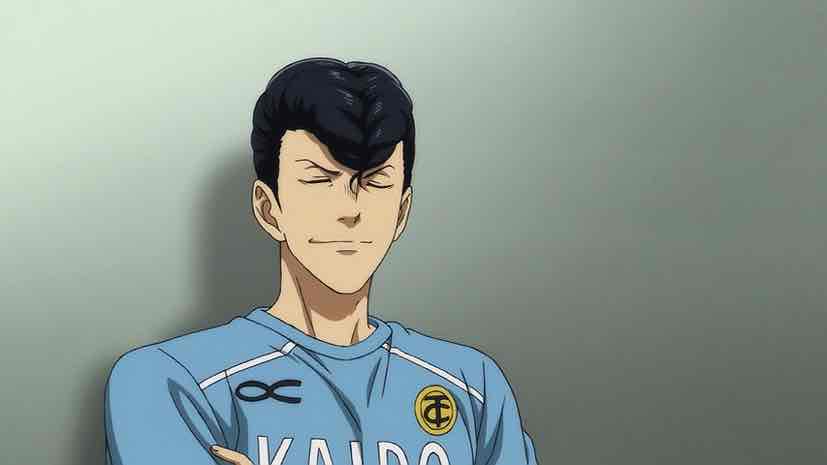 Satake seems to be a bit of a smiling assassin. He’s polite and modest, but clearly ruthless. He has a chip on his shoulder – he’s like his kids, someone who was considered a second-rate talent that the big clubs couldn’t be bothered with. And what he says can’t be argued with, really – Musashino has everything Esperion doesn’t. Esperion certainly isn’t playing as a cohesive unit, and they lack a true striker. They also lack someone like Muto – a leader on the pitch who sets the mood for the team, organizes them, and keeps them calm when things start to unravel. In short, this is no giant killing – it’s Musashino that’s top of the table, not Esperion. The real upset here would be if Esperion, as they are now, finds a way to turn the tide.
Satake seems to be a bit of a smiling assassin. He’s polite and modest, but clearly ruthless. He has a chip on his shoulder – he’s like his kids, someone who was considered a second-rate talent that the big clubs couldn’t be bothered with. And what he says can’t be argued with, really – Musashino has everything Esperion doesn’t. Esperion certainly isn’t playing as a cohesive unit, and they lack a true striker. They also lack someone like Muto – a leader on the pitch who sets the mood for the team, organizes them, and keeps them calm when things start to unravel. In short, this is no giant killing – it’s Musashino that’s top of the table, not Esperion. The real upset here would be if Esperion, as they are now, finds a way to turn the tide.


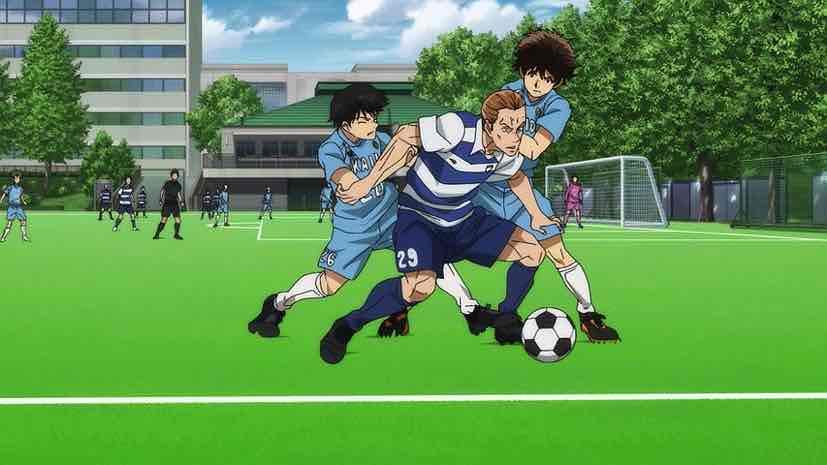
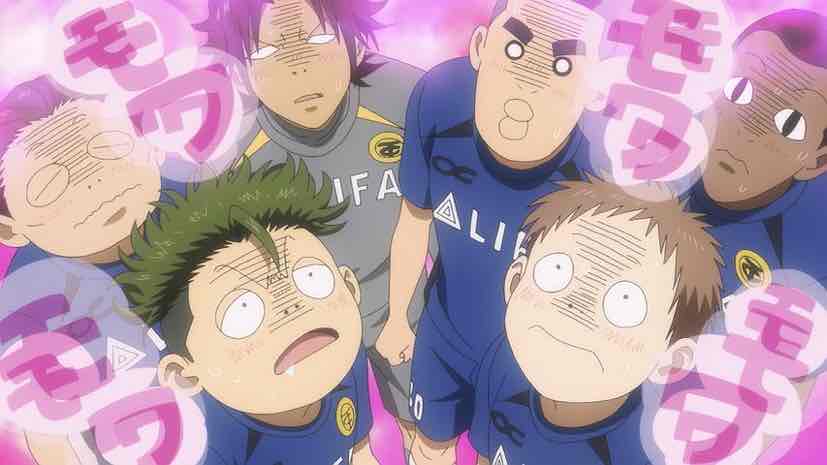
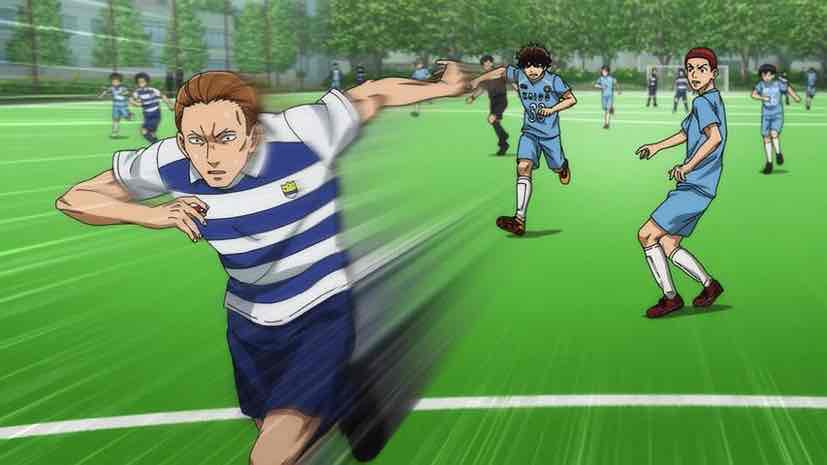
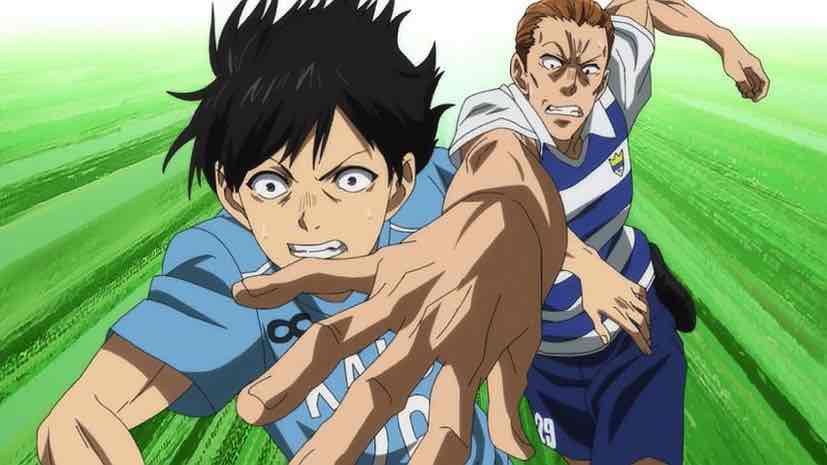
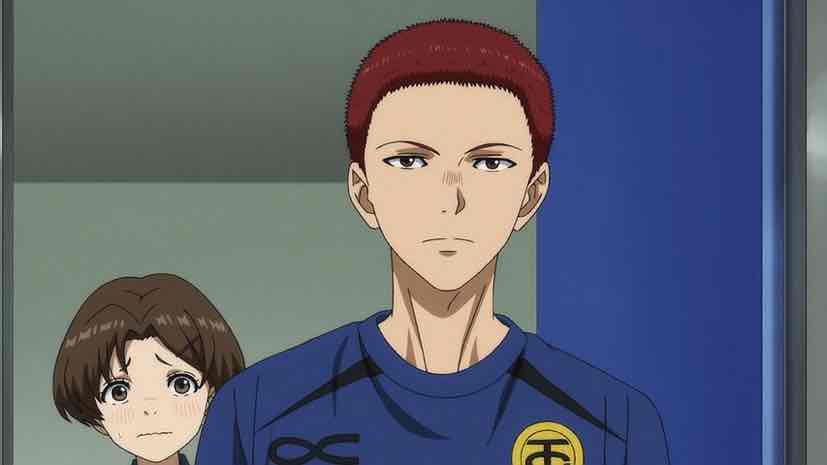
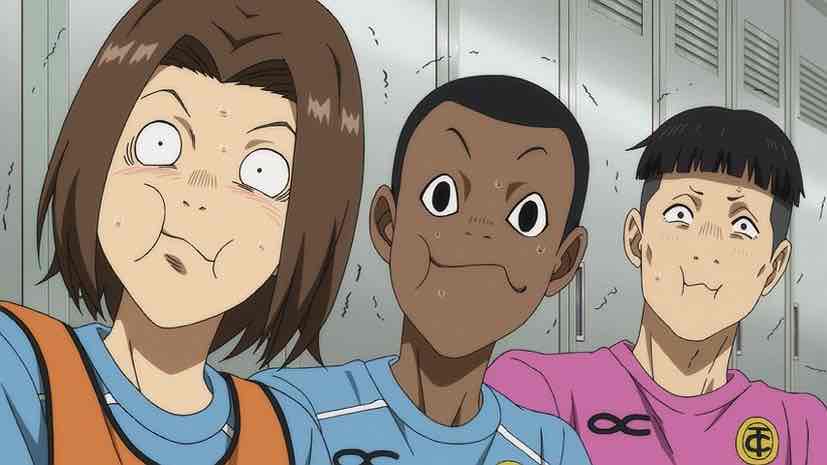
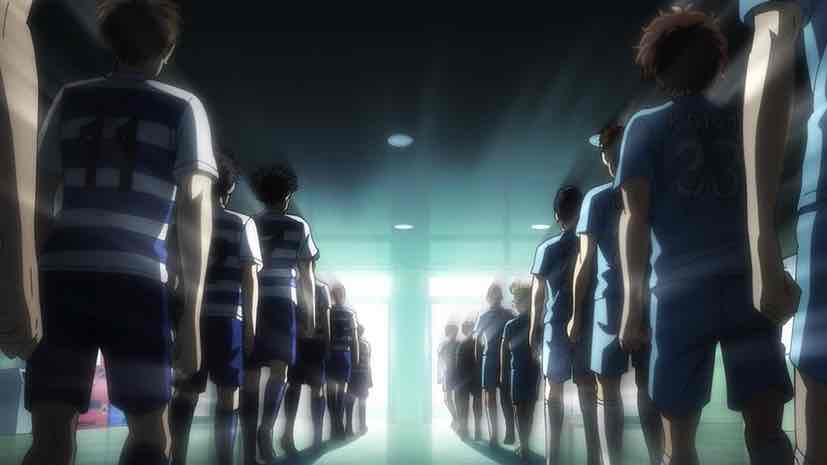
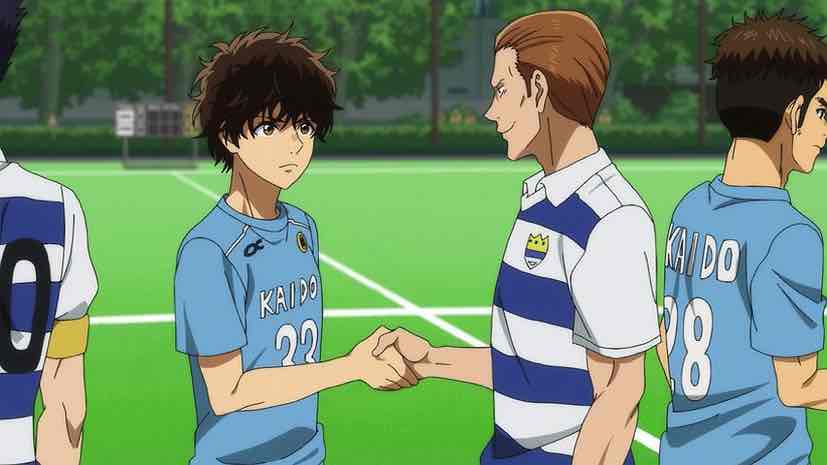
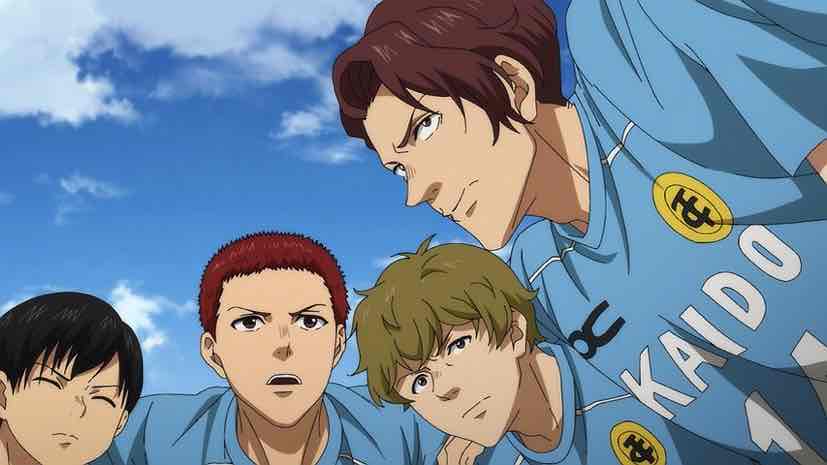
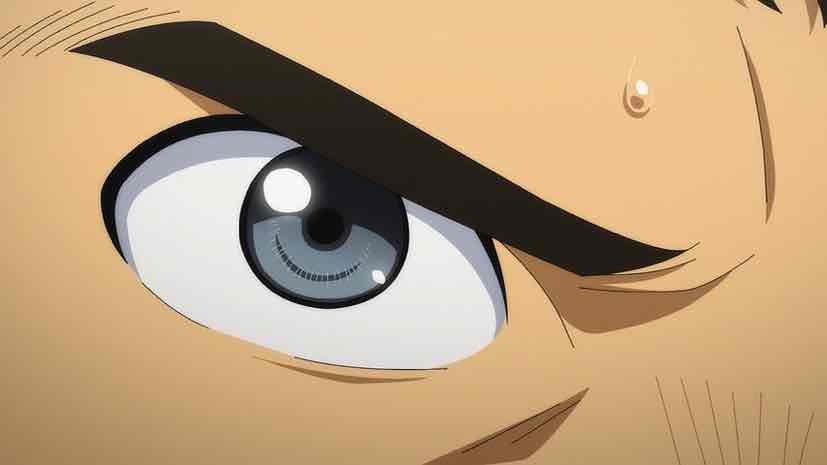
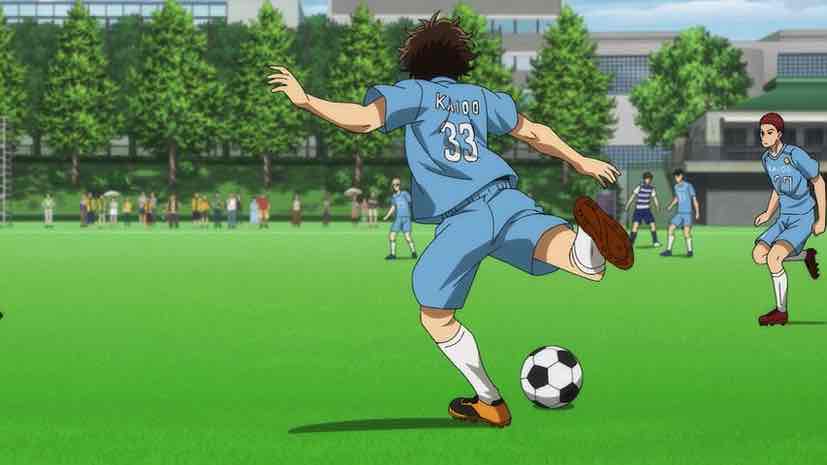

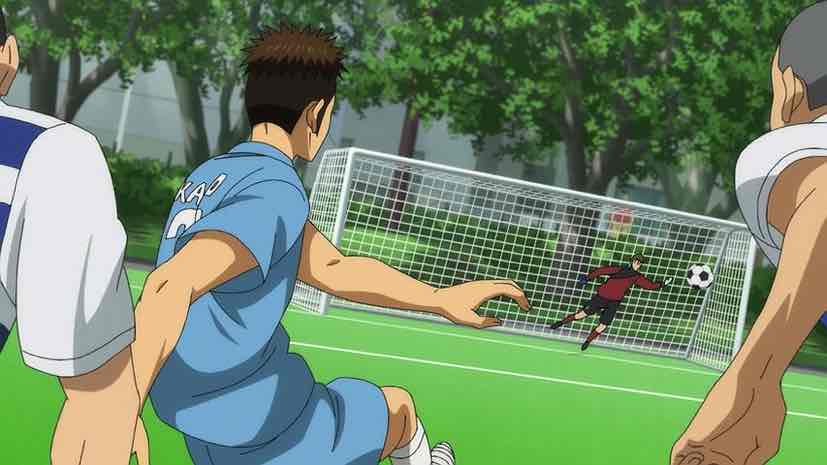
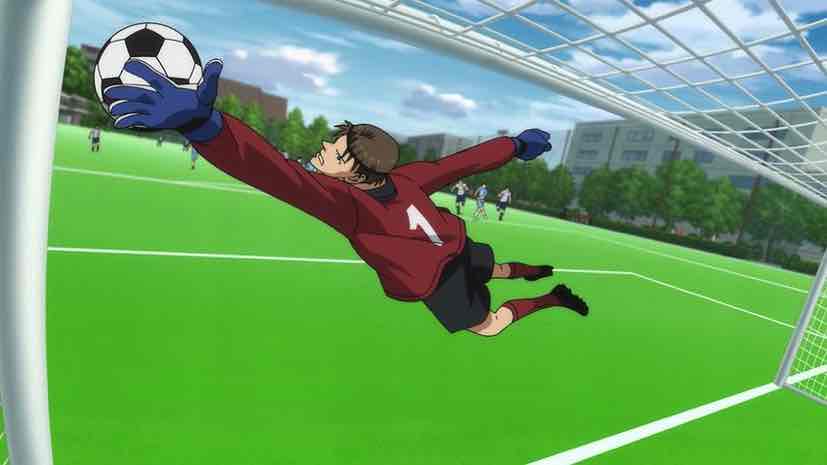

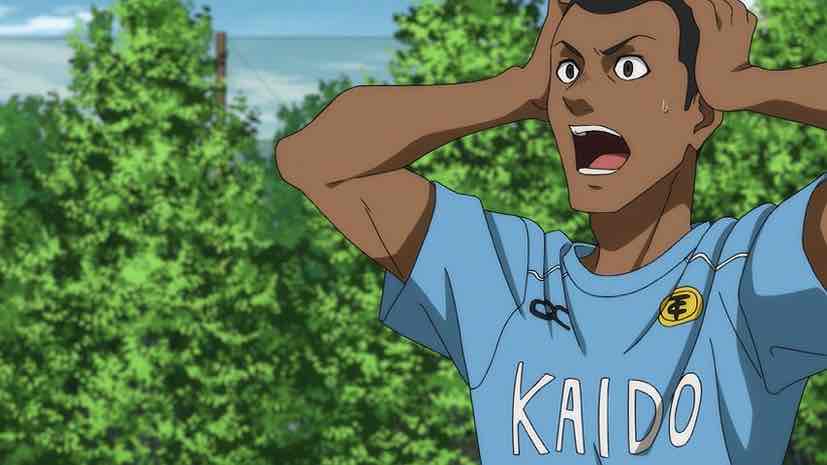


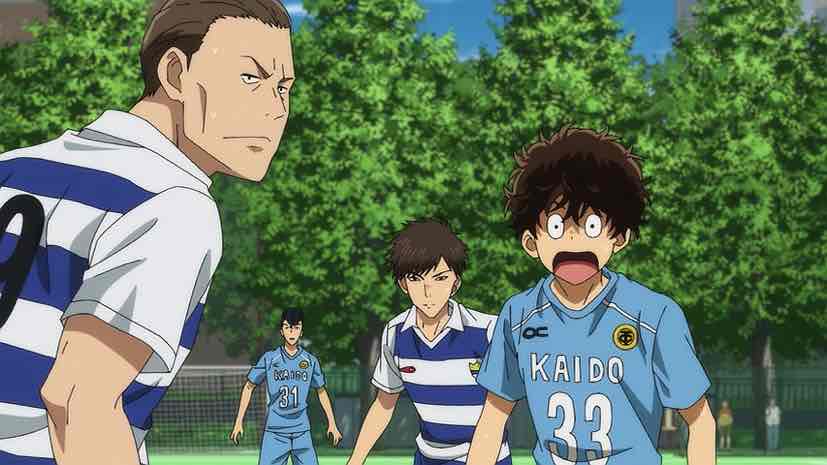
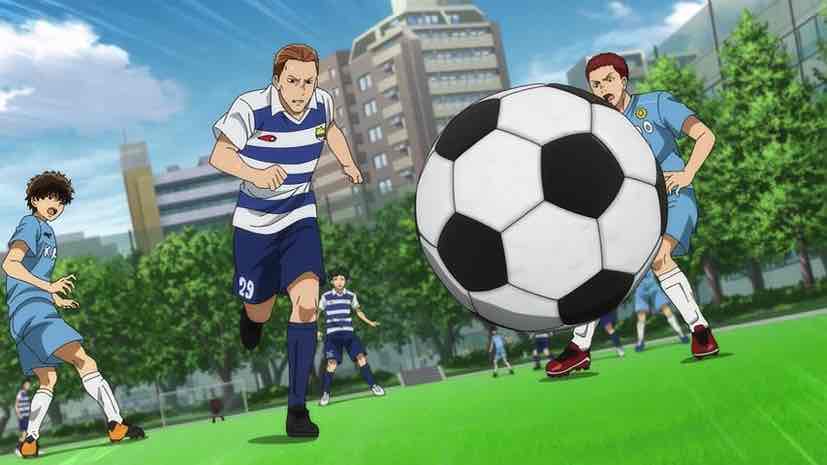
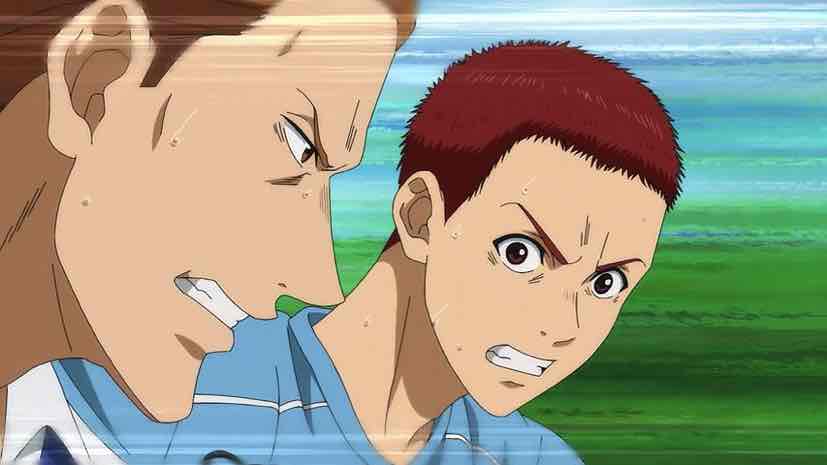

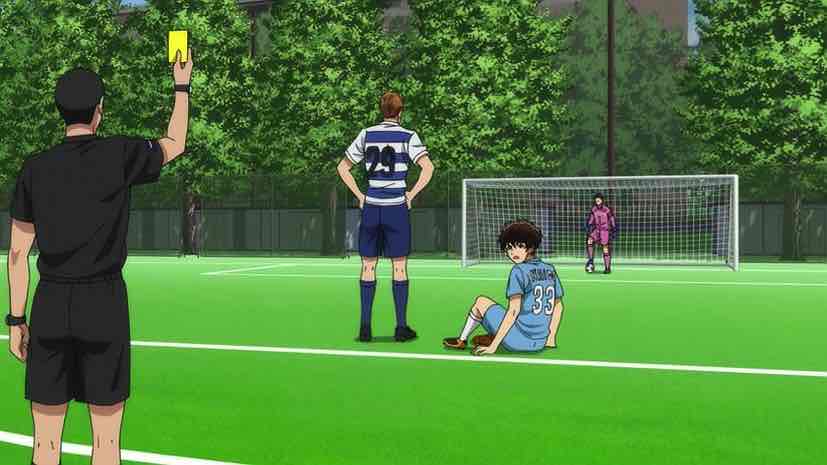

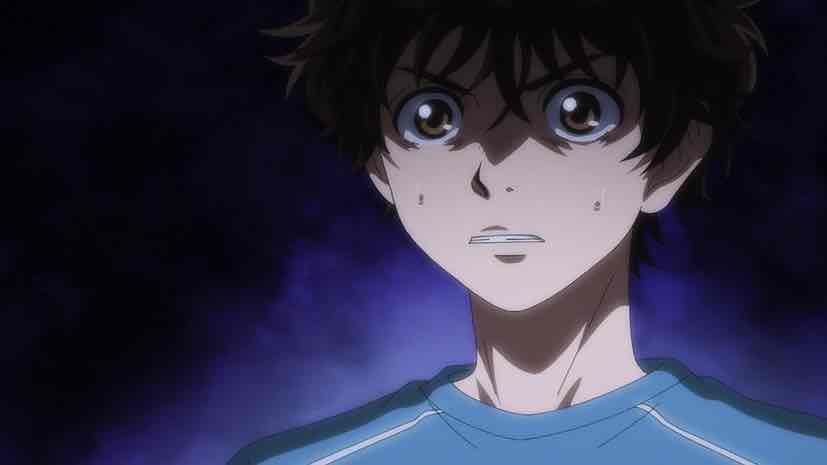
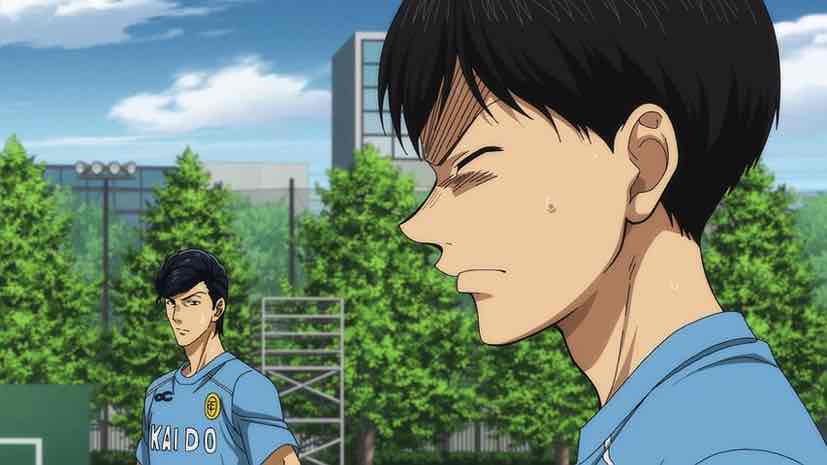
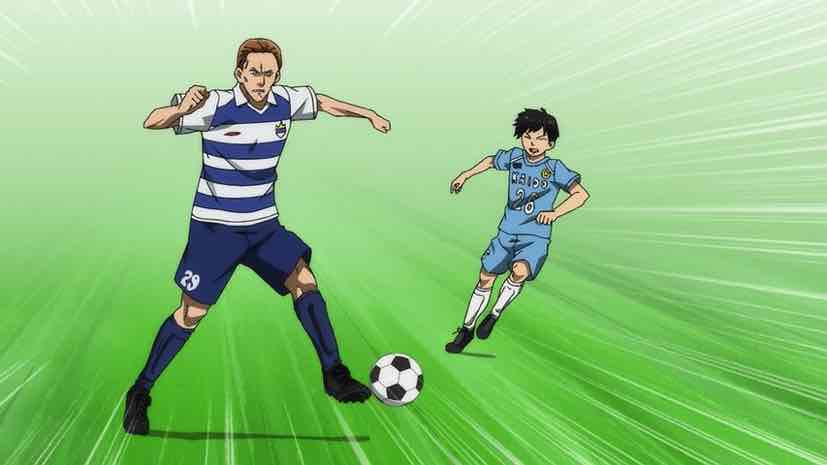

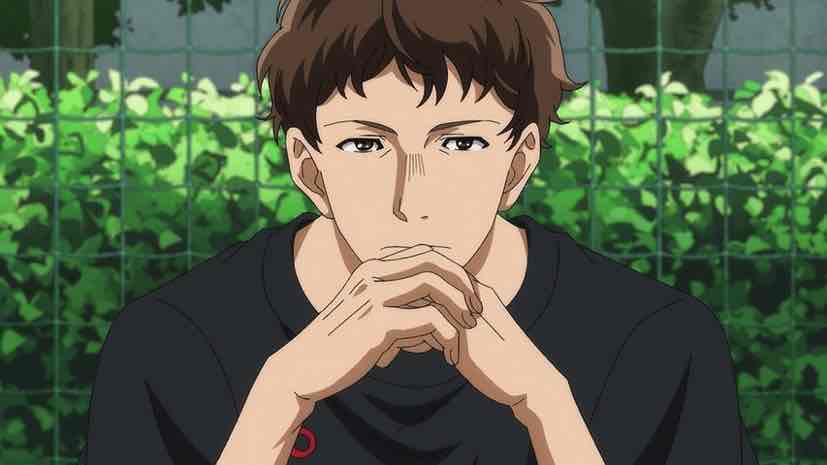
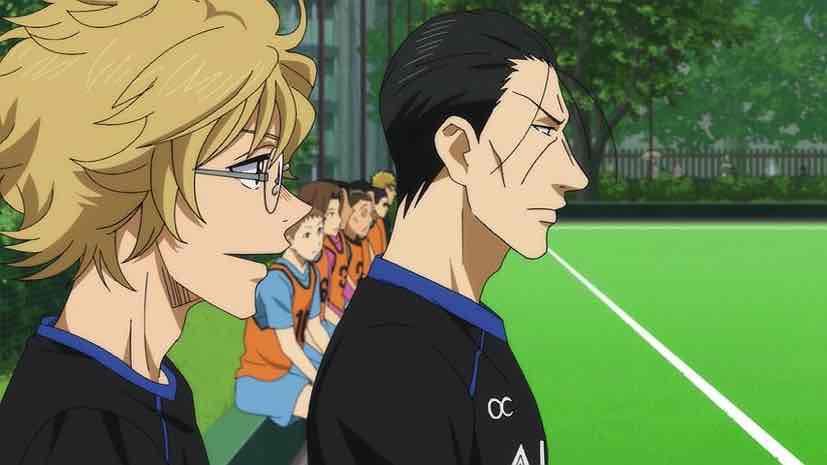
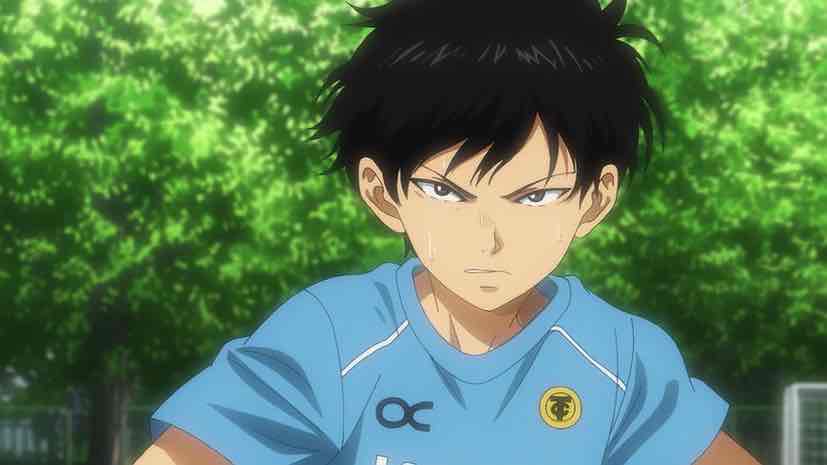
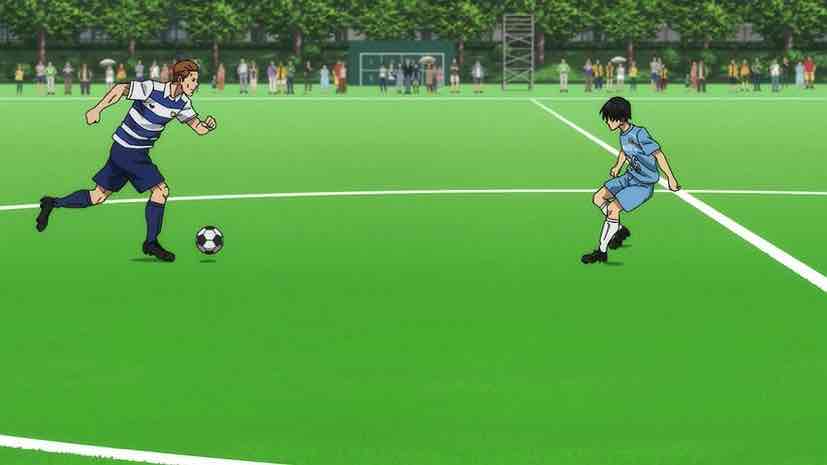
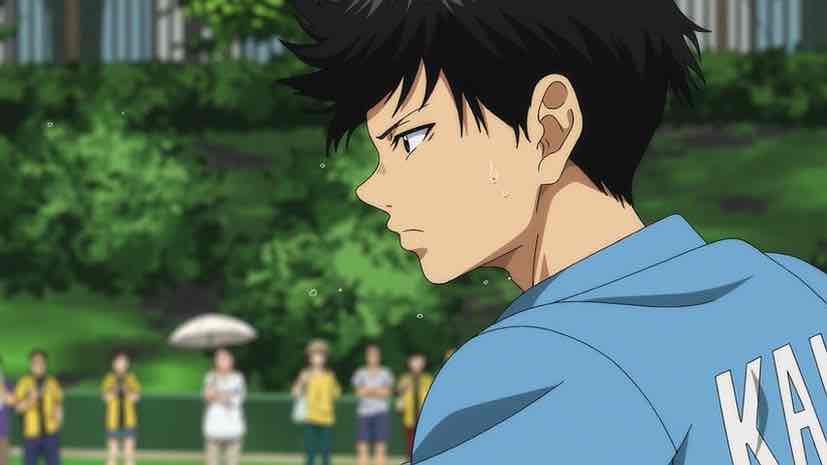
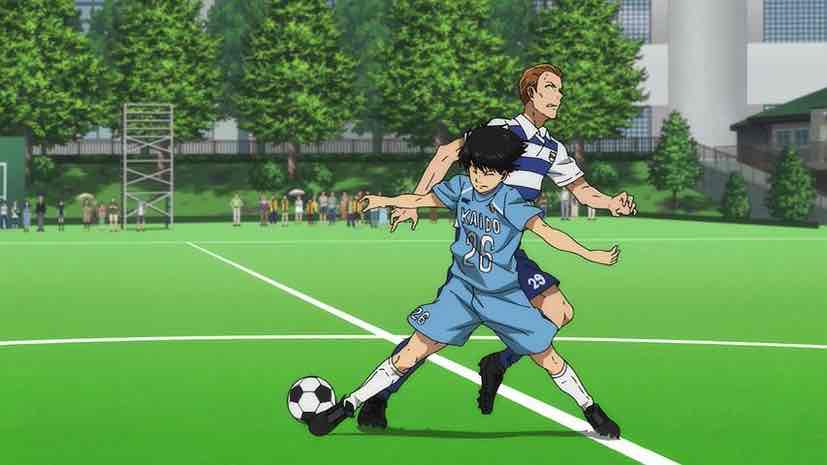


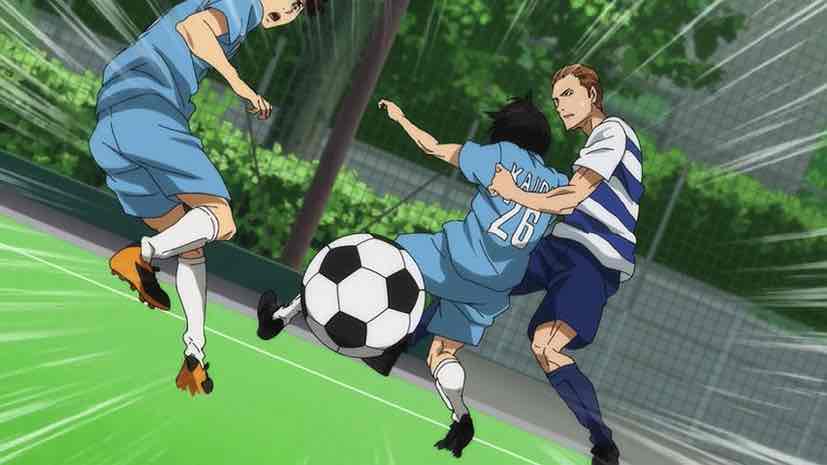
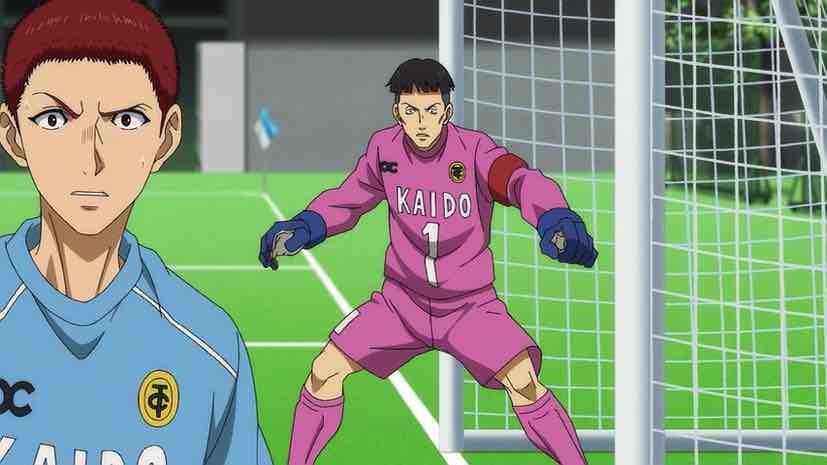
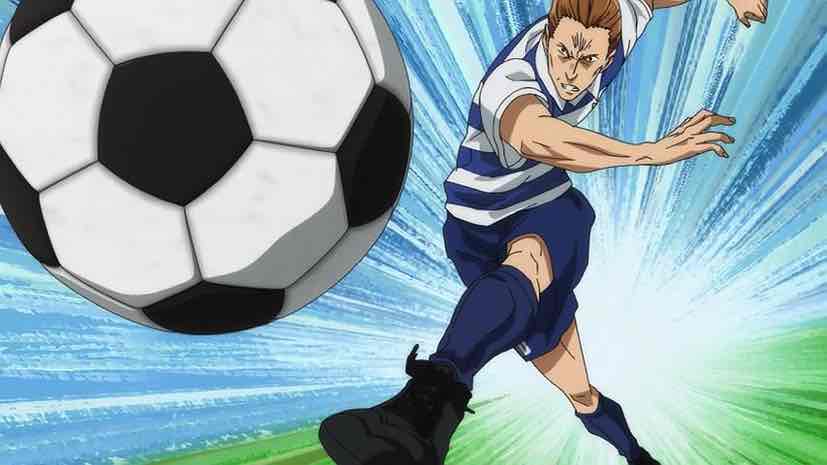
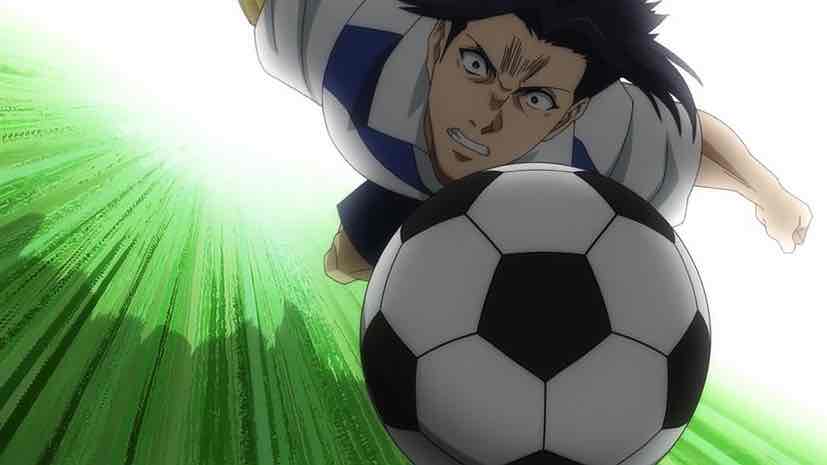
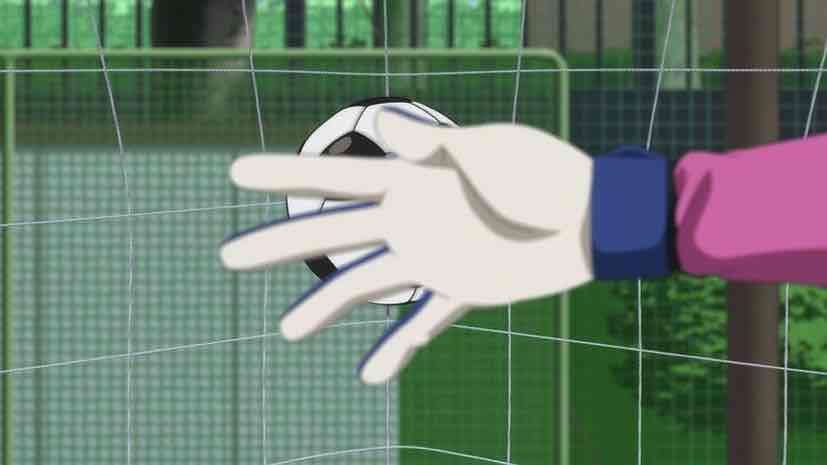
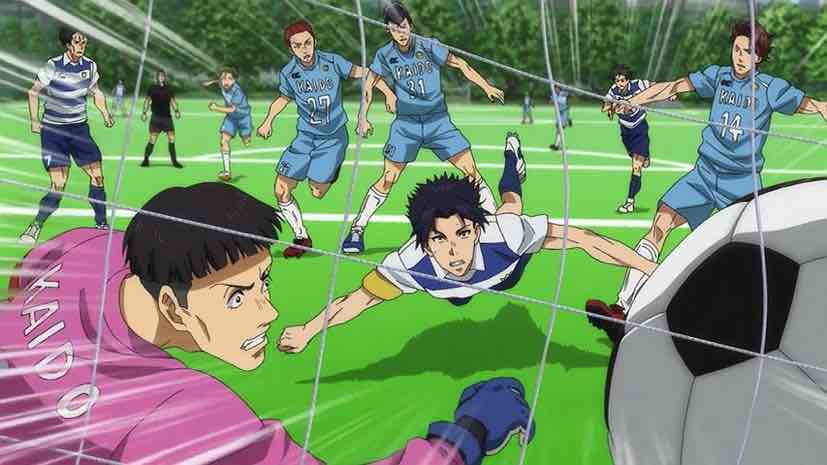

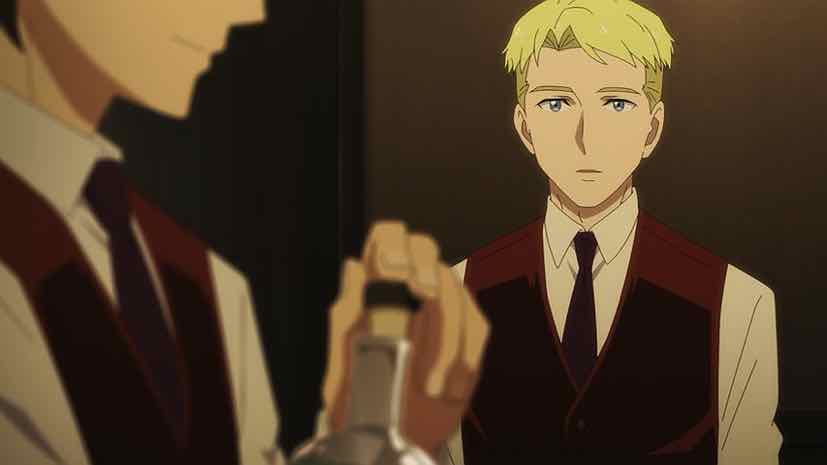
Jindujun93
September 4, 2022 at 2:01 amIt wouldn’t even be too surprising if Musashino was directly inspired by Leicester – the chapters when the team was introduced were published in late ’16, so when the champion season was still fresh in the world’s memory, and at several points throughout the manga, Ao Ashi doesn’t just reference real world players, but also actual real life teams and games (I specifically remember them referencing the Watford vs Liverpool game from February 2020 for example), so honestly? It wouldn’t strike me as especially far-fetched. Naohiko Ueno definitely likes international football, that’s for sure (he’s basically Kobayashi’s consultant for Ao Ashi).
Guardian Enzo
September 4, 2022 at 9:14 amThe timing is certainly interesting.
Haraga
September 4, 2022 at 5:17 amI wonder if the show acknowledges Kaneda’s goal as just him being brilliant or as primarily Aoi’s mistake. I don’t think Aoi should’ve pressed Kaneda that much considering that the striker was already tightly marked by Kuroda and Aoi kept the zone he was supposed to safeguard vulnerable.
Guardian Enzo
September 4, 2022 at 9:16 amWell actually, that was out on the touchline with Ashito as the left back would normally be defending. Technically it was Kuroda who was out of position, but that was because he was man-marking Kaneda. I don’t think either of them made a mistake TBH – on-form strikers sometimes make ridiculous plays that defy logic.
Michael
September 4, 2022 at 5:26 amHave to say Date’s coaching could have been better here. No real back up plan and no real emotional prep for his youngsters (“when long ball stops working don’t panic”). That sort of stuff is really important
Guardian Enzo
September 4, 2022 at 9:17 amI think there’s another shoe to drop with his prep – I hope so. But generally speaking he doesn’t strike me as a great man-manager, no.